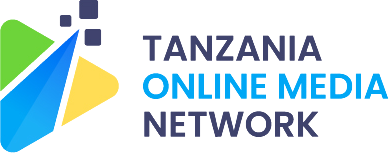ANALYSIS OF THE DRAFT AMENDMENT OF THE ONLINE CONTENTS REGULATIONS, 2021
The Minister for Information, Culture, Arts and Sports is set to amend the Electronic and Postal Communications (Online Contents) Regulations, 2020 herein referred to as the “Online Regulations, 2020”. The intended amendment will be effected via the Electronic and Postal Communications (Online Content) (Amendment) Regulations, 2021.
Notable features of the amendment: –
• Internet services providers (ISP) are now excluded from the application of the regulations. Previously, the online content regulations applied to internet service providers as well. Regulation 2 has been amended to remove the ISP from the persons who are bound by the regulations.
• There is an addition of what is known as - “online content aggregator.” This means a licensed content service provider who collects content from different sources and packs it into specific baskets of channels to be accessed by users upon payment of a prescribed fee.
• The definition of the online content service has been narrowed down. Some mediums have been omitted from the definition: internet websites, application software, microblogs, public account, and online live streaming. Previously the online content service meant content broadcasting to the public through internet websites, application software, forums, blogs, weblogs, microblogs, public accounts, instant messaging tools, online live streaming, aggregators, and other related platforms. The amending regulations define it to mean content broadcasting to the public through television, radio, blogs, weblog, instant messaging tools, social platforms, and aggregators by subscription.
Reduction of licenses from four categories to only two categories. Previously, there were four categories of licenses. Under the amending regulations, the licenses are in two categories: Online Content Service License Category A and Online Content Service License Category B. Specifically, category A is meant for online content media services and content aggregator and category B is for simulcasting radio and television .
• The licensees are no longer required to establish policy or guidelines on online content safe use or use moderating tools to filter prohibited content. This is due to the amendment of regulation 9.
• Mainstream content service providers with a district or regional license are now free to simulcast via an online platform. Regulation 10, which previously prohibited them, has been repealed.
• Internet Cafés Operators are no longer bound to install CCTV cameras, put a mechanism to filter access to prohibited content, ensure that all computers are assigned static IP addresses, keep users register, and ensure that every internet user is registered as required previously.
• Fees for licenses have been tremendously reduced. The license renewal fee is only Tshs. 100,000 from the maximum Tshs. 1,000,000 previously. Simulcasting Television and Radio have been totally exempted from paying license fees.
However, the intended amendments have to a large extent, not addressed critical issues relating to online contents regulations. Some of the issues which have not been addressed by the amendment include the following:
- An open-ended and broad list of the prohibited content as provided under regulation 16(1) and the third schedule to the Online Regulations, 2020. These have not been amended. The prohibited contents are provided in overly broad terms capable of multiple interpretations and manipulation. There are no clear definitions of some of the prohibited content, and some are worded in an open-ended fashion inviting the subjective interpretation of the enforcers. These may be used to restrict or censor certain information as prohibited content in case the authority or Government doesn’t like them.
- Unsafeguarded removal of the content by the Tanzania Communication Regulatory Authority (TCRA) and service providers (intermediaries). These are provided under regulations 9(g), 11(3) & (4), and 15 of the Online Regulations, 2020.
- Under the said regulations, TCRA or any party affected by the content published online may demand the licensee (online content service provider) or host (intermediaries) to remove the content.
- Upon such notification, the intermediaries are required to notify the intended person to remove the content within 2 hours. This is problematic in two ways. First, the regulations do not contain any safeguard against malafide intention by individuals who may use that loophole to affect the rights of other individuals to express their opinions. This is because, under the regulation, the licensee or host is under a legal obligation to take down the impugned post within 2 hours after notification.
- Then the overriding question is who judges or decides whether the content is actually a prohibited content? Is it the offended person, TCRA, or licensees? In an actual sense, the intermediaries seem to assume the role of the courts or judges and have been empowered to restrict the right of others to express their opinions. Second, there is no express prescribed mechanism to challenge such takedown, e.g., appeals, etc. What if the person is aggrieved by such a decision to take down his or her posts? What is the remedy? The regulations are silent on this.
- Restriction on the use of anonymity. In the digital era, anonymity is an important component of the freedom of expression online. However, regulation 9(e) of the Online Regulations 2020 requires the licensees to have in place mechanisms to identify the source of the content. Technically, this means that it is virtually impossible to use anonymous and post content online. When there is no guarantee of anonymity, individuals may not be free to express their opinion, and thus, their right to freedom of expression is impacted.
- Criminalization of false news and defamation. Paragraphs 10 and 2 (b) of the Third Schedule read together with provisions of regulation 21 criminalize false news and defamation. This is not acceptable under the international standards of freedom of expression. It goes without saying that these affect the press freedom and journalism practice since journalists will not be free in discharging their duties for fear of prosecution.
- They are dictating the nature of the content to be published. Under regulation 9(b), the licensees (including media houses) are required to publish content that takes into account the trends and cultural sensitivities of the general public. This is a dictation on the contents to be published and thus interferes with the press freedom.
Although the intended amendment will bring about notable changes, particularly on the issues listed earlier above, there are still some critical issues that have not been addressed at all. It is expected that the intended amendment will be refined to address some of the problematic issues with the Online Regulations of 2020.




